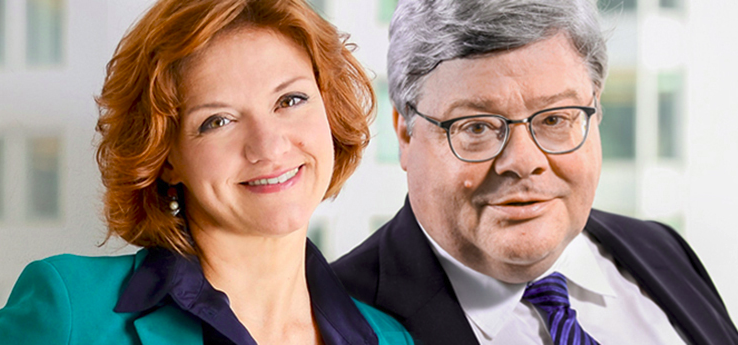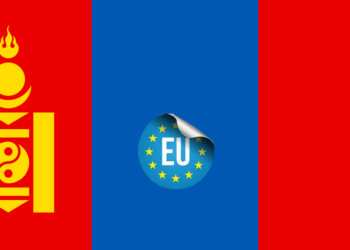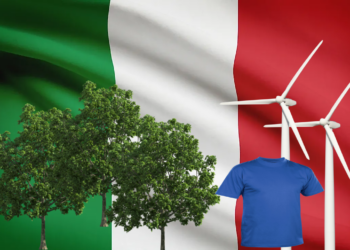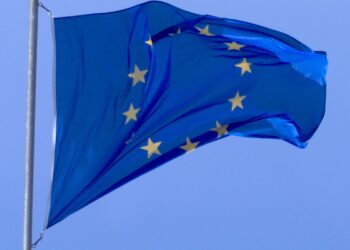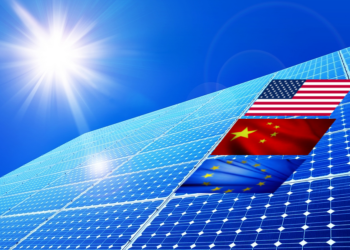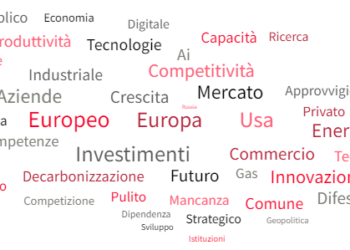Bruxelles – About the incoming Italian election, the wish is to get center-left majority from the next 4th of March vote. A center-left majority capable of reviving pro-European policies and supporting the ecological transition. The European Greens want a credible Italy, able to play the role of main character of that change that even the changed German political scenario can offer. In the interview granted to Eunews the two co-chairs of the European Greens Party, Monica Frassoni and Reinhard Butikofer, also addressed the issue of sustainable agenda, promising battle against the industrial model of Emma Marcegaglia (the president of BusinessEurope, the ‘Confindustria European Union’) and those opposing climate policies.
Eunews: In Italy general elections are about to be held. A centre-right victory is expected, with Berlusconi assuring a pro-European agenda and his ally, Salvini, stating to be ready to prepare the ground for leaving the single currency. How do the European Greens look at these election? What about your expectation?
Frassoni: We would like having a centre-left government. A grand coalition wouldn’t give neither guarantees of stabiliy nor guarantees in terms of positive social and economic policies, and Berlusconi is not the answer for Europe. It is not possibile to exit the crisis without starting an economic transition towards new jobs and new sustainable productions. Unfortunately the electoral campaign is not driven in that direction. In Italy the Greens are part of ‘Together’ (Lista Insieme) and are in coalizion with the Democratic Party because they do believe that avoid a Five Star Movement’s victory be prior. We are not convicend by Renzi’s Pd approach, we want the centre-left to be credible on eco-transition and the idea Europe needs to be stronger in a path different from the one of austerity. It seems to us neither Pd nor Bonino’s Lista Europa talk about how to change Europe in order to make it capable of regain consensus and legitimacy.
Butikofer: The prove of pudding is in the eating. That means the real test is the real action, and this is one of the three key point for us. Second key point is the European ideal, and the Greens – as far as I can see – are the only political family not to have anti-European members in any of the EU Member States. Thirdly, we work to strenghten our contribution in our countries as in Europe. We advocate the policy of change, focusing on environmental, social and economic concerns. The Greens can offer policies to promote these transformations.
Will be next Italian government be able to provide such a change? When it comes to sustainability, Berlusconi appears to be closer to the needs of industry…
B: I am not in the position of express myself on Berlusconi or Salvini, but I am of the idea that Berlusconi should read the encyclical ‘Laudato Sii’ by Pope Francis.
F: Green issues are hampered by a political culture going in the opposite direction – and our candidates are saying this – and by industrial interests which don’t promote the already existing ‘green’ sectors, sectors generating employment and turnover with no sustain from the institutions. It’s also fo this reason that a stronger Green party is needed. But this is clearly also a political questions, which cannot be solved by the European Greens.
Do you fear a centre-right government in Italy could promote light policies for sustainability, opening to those industries willing to a more pollution?
F: in Italy many industries don’t pollute because have undestood they real business is right there, in green economy. We do believe that all this should be accompanied by political choises and incentives to foster the transition.
B: Of course I see this risk, but I also see opportunities. Green transformation is already happening. Renewables have been introduced, policies for energy efficiency are in place, we are phasing-out the traditional energy sources. The real point is: want we to be leader or lugging behind? If we want to be leader we must create the political opportunities we need to be leader. In Italy there are valid NGOs, there is some knowledge and some will to change. Of course in the political sphere whether you have Green parties or not makes huge difference.
You mentioned the green transformation. Has the Dieselgate scandal betrayed such a transformation?
B: There will be always industries trying to stop sustainability in name of profit. I remember the current president of BusinessEurope, Emma Marcegaglia, saying that the EU should have not a climate policy at all. That’s one of the most stupid things I’ve ever heard. We have to fight against those people rejecting the change.
What guarantees can Italy provide in economy? European commissioner Moscovici called the country to keep going forward with reforms, but on the respect of the 3% threshold deficit/GDP the centre-right seems to be ready to change mind, starting spending.
F: Crisis, migration and austerity contributed to an anti-European sentiment in Italy, too. Even the idea of not respecting the 3% threshold is being used in the electoral campaign to foster such a sentiment. Regarding fiscal policies, yesterday (on Wedsnesday, ed) the committees for Budget and EU affairs of the Italian Parliament unanimously voted against the integration of Fiscal compact in the EU treaties. As European Green Party we have always been against critical on Fiscal compact, and yesterday vote gives the chance – if Italy will get a credible government – to open a window of opportunity for building alliances with other countries in order to push the EU in investing more. The problem is we need quality investments for decarbonization, and this is something not enough taken into account in Europe.
Let’s move from Italy to Germany. There an agreement between Cdu/Csu and Spd for a coalition government. There will be a switch from a Finance minister like Wofgang Schaeuble to a socialdemocratic one. What does it mean for Germany? And for Europe?
B: Of course this third grand coalition is giving more attention to the EU issues, and that’s positive. In the past socialdemocrats basically abandonded the European theatre and left up to Angela Merkel to deal with European affairs. With Martin Schulz socialdemocrats are a player again, and we can look for some change. For the future we can expect a major German contribution to the EU budget, but this won’t be good enough. New priorites have to be set, and for us they must be about effective agricoltural subsidies, a nature conservation scheme, constructing digital skills and an educating society. Furthermore the Banking Union should be completed, we need it as stabilizer.
Let’s talk about European election, now. The rejection of trans-nationals list is a missed opportunity?
F: Of course it is, and franckly speaking I am disappointed by seeing true pro-European MEPs like Elmar Brock (Ppe), Alain Lamassoure (Ppe) or Richard Corbett (S&D) not supporting this project. European elections are more national, and on the contrary we need European electoral campaigns. By rejecting the trans-national lists project it has been prevented to have a useful tool for the European debate and the European electoral campaign.
B: I don’t want to allow myself to be disappointed, the struggle goes on. Now we must focus on the spitzenkandidat process.
With this regard, are you in favour of primary elections?
B: Personally I have always been in favour, and I tried to push this idea at all levels: locally, regionally, nationally and even at European level. I recall that in 2014 the Greens hold pan-European electronic primary elections. I believe primary elections be a tool to eliminate distances between politics and citizens, and I think we are on the right way to promote this kind of change.
